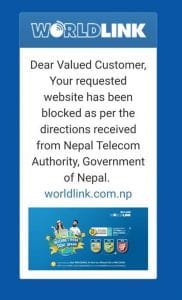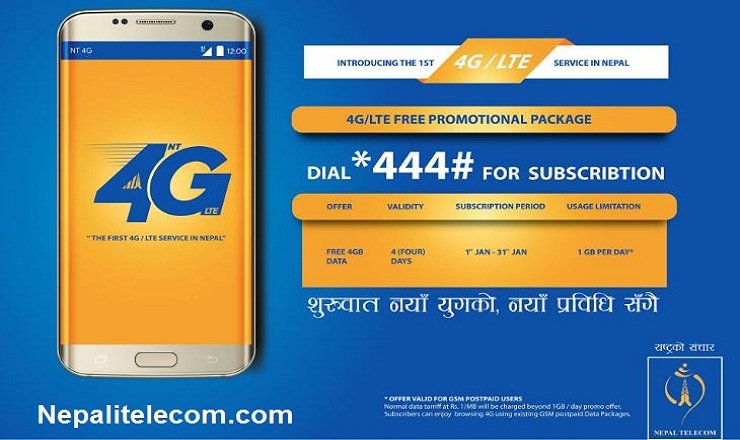Internet Service providers have started blocking porn sites and obscene content in Nepal. As Government has decided to ban porn sites in Nepal, the blocking comes into effect along with regulator NTA instruction. ISPs like Worldlink, Vianet has already blocked such porn sites while others to follow soon.
Based on the Government decision, NTA has instructed NSP and ISP to stop the distribution of such obscene content. Article 121 in the new Muluki Yen 2074 prohibits the broadcasting, distribution, publication of offensive sexual content. They also cite the easy access to such sexual content to be the reason for the increased rate of rape in the country.
When we tried to open some popular porn sites in Worldlink internet, a separate domain appears which says “Dear Valued Customer, Your requested website has been blocked as per the directions received from Nepal Telecom Authority, Government of Nepal: Worldlink.com.np”. We also come to know the banning of such content in Vianet Internet service.

Although some ISP block porn sites, such websites are running openly in all Telecom service providers (Ntc, Ncell, Smart).
There is a mixed reaction over the decision to ban such porn sites. Youngsters which are known to be more attracted to porn have bullied such decision as they know how to access such blocked content. We also doubt the government decision be taken out of any research for the relationship between porn and rape.
How ISPs ban some websites?
Let’s find out how the service providers block porn sites.
When we request to open a website in our browser, the request goes to the browsed web page server through the ISP that you are connected with. The data or content from the server also goes through the ISP to the users, which can also be monitored. ISP is the bridge between the user and the requested domain’s server. The ISPs can block the request of some websites to go through them to the browsed domains server or land to some other page, giving information on the ban. It could also be done by blocking Domain Name Server (DNS) resolution, a process to resolve Domain name to IP address for the request.
Although the ban or block is in effect now, people can always use proxies or VPN to bypass such blocking. The proxy will act as the middleman between the user and the browsed server. The proxy server will fetch the website and send to the user, bypassing any filter and browse without restriction.
Similarly, the VPN service will change your location to some other country, changing IP address. VPN prevents the ISP from accessing the content as the connection between the user and VPN server is encrypted.
ALSO READ













